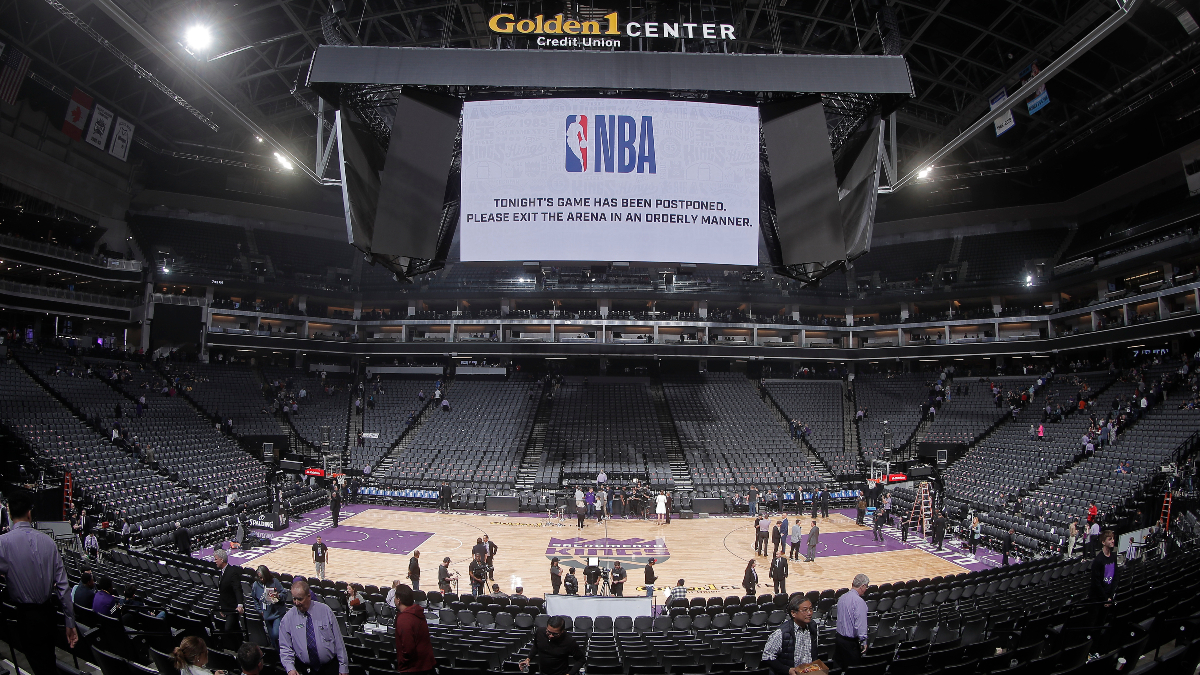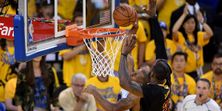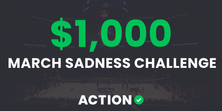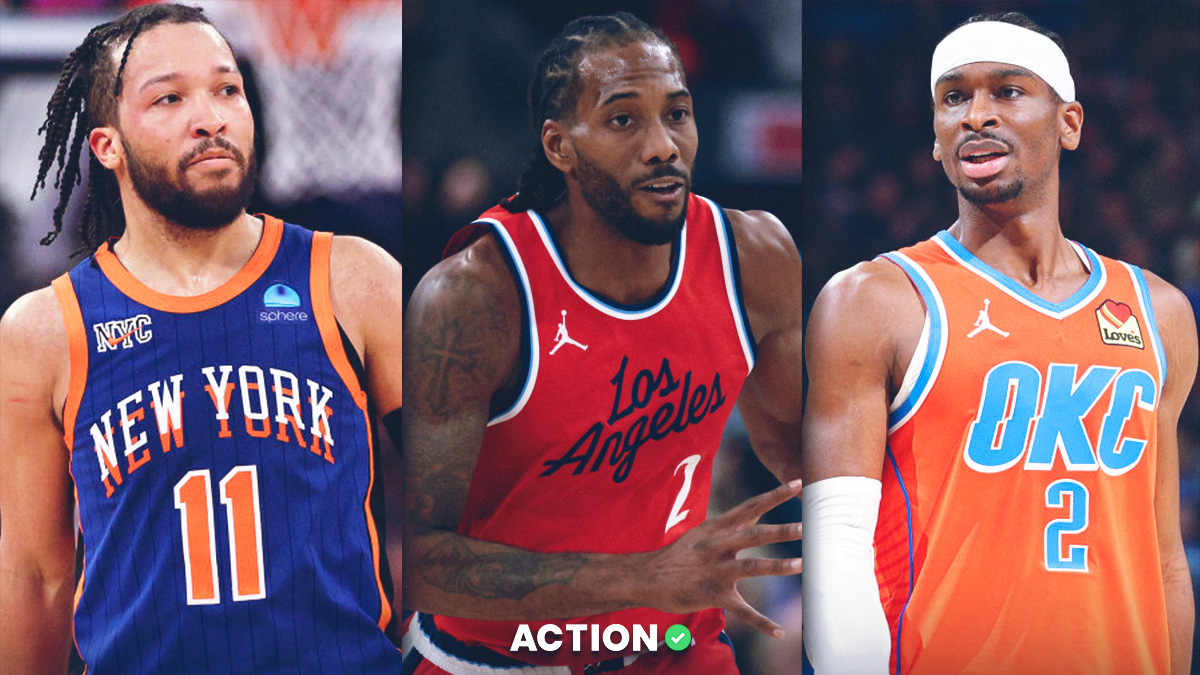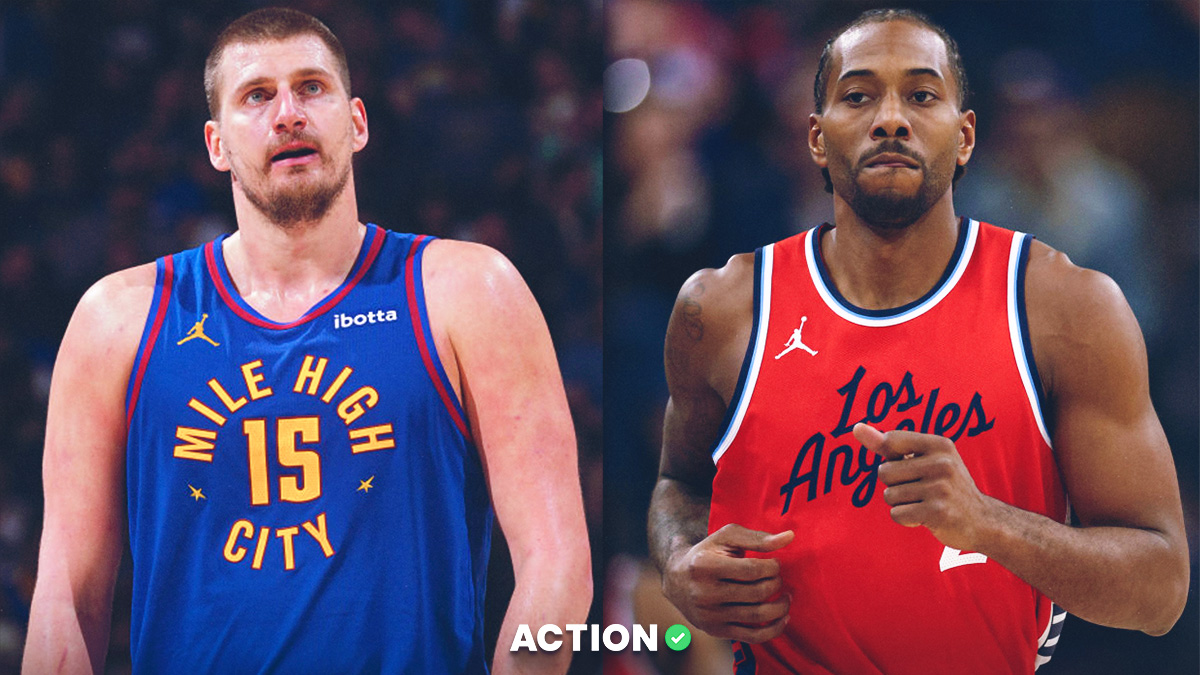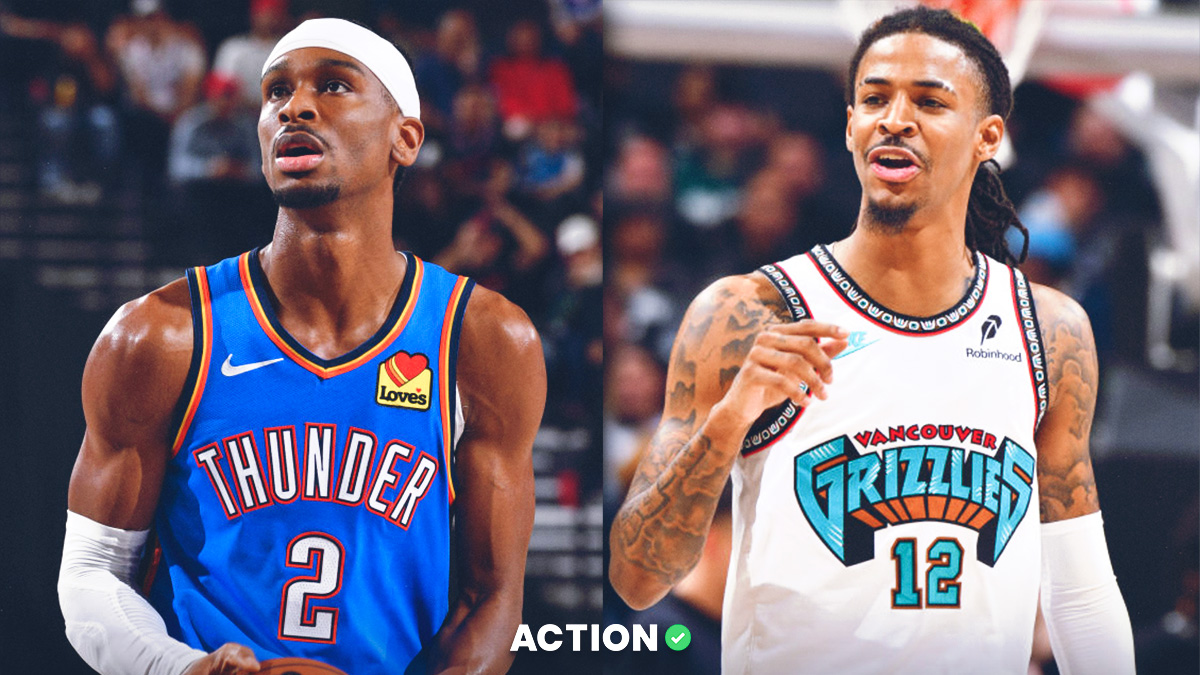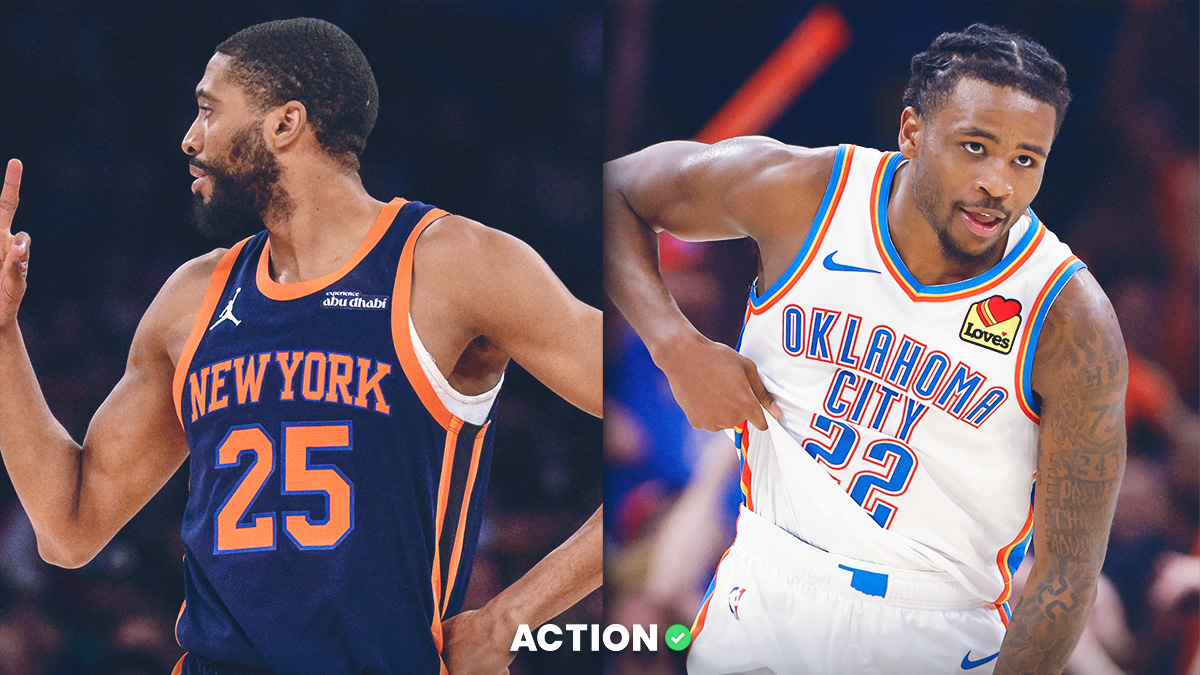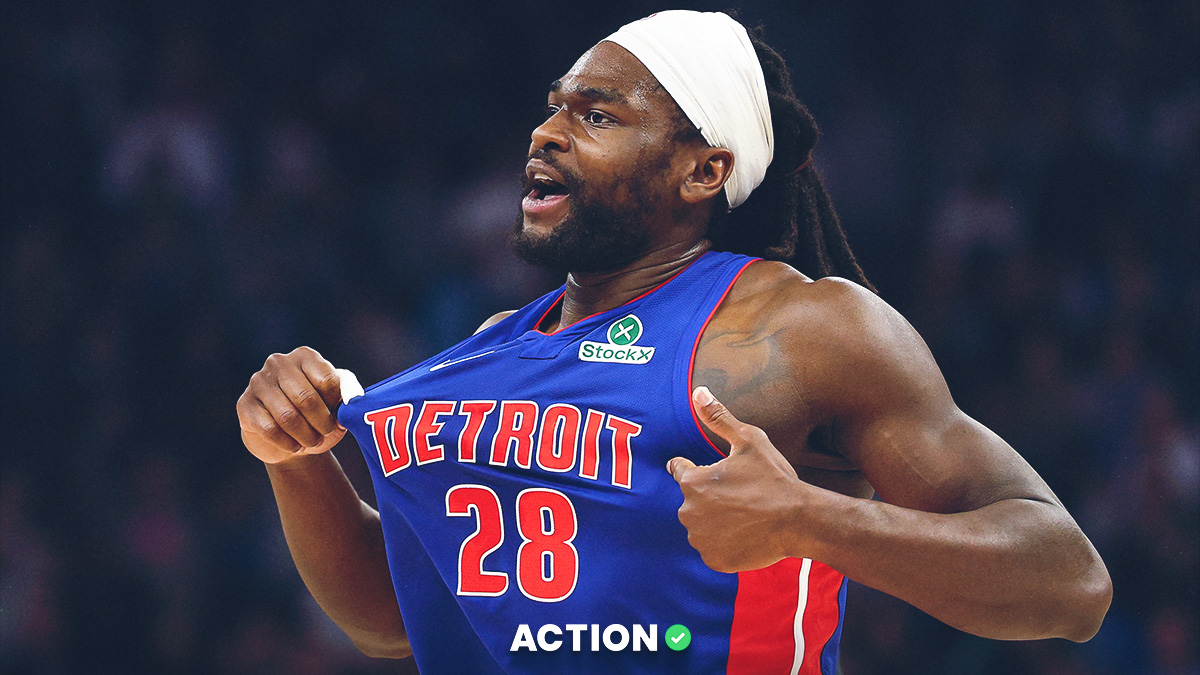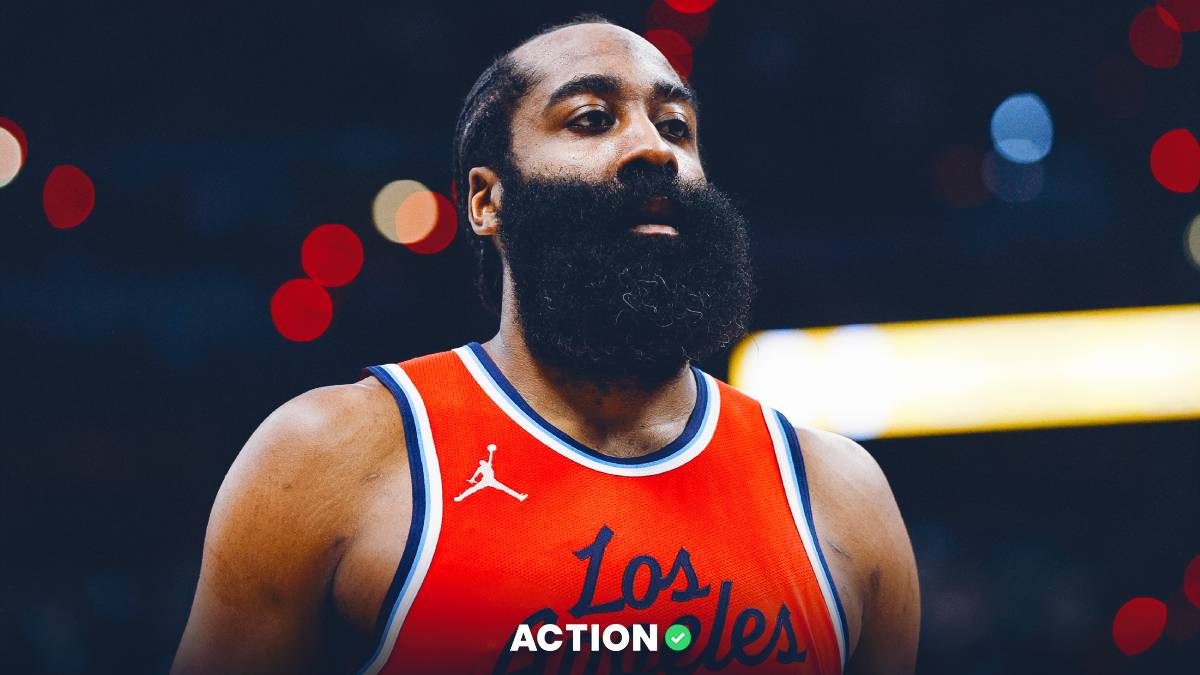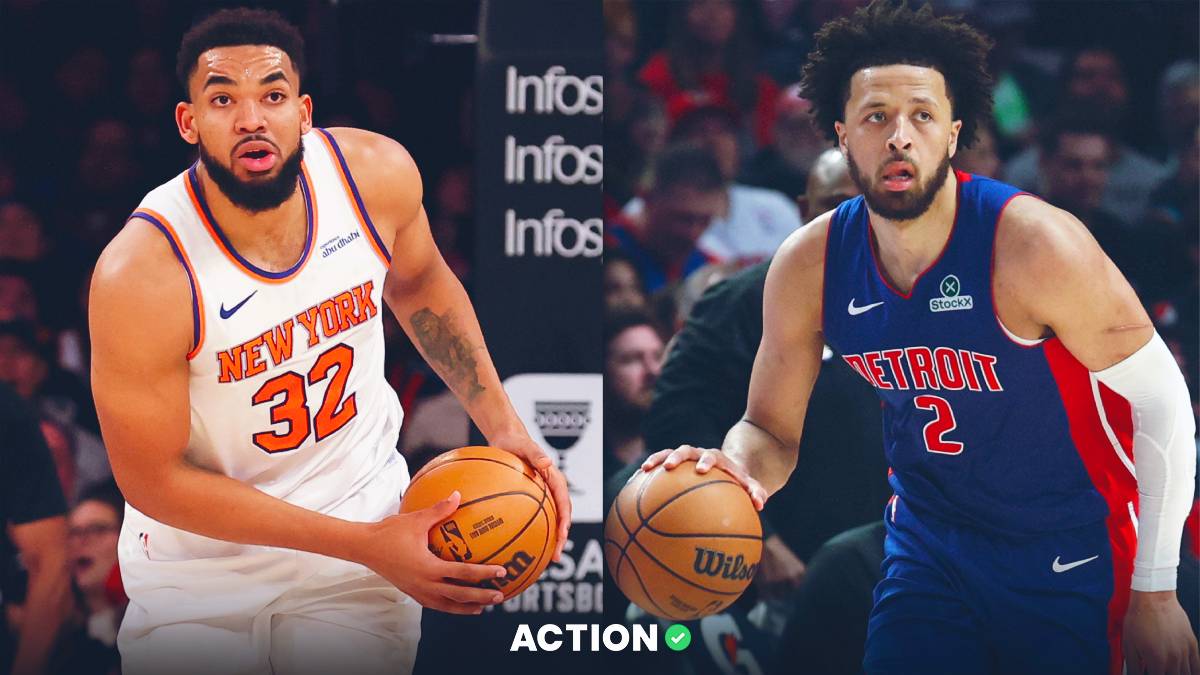The first thing I will tell you is that no one knows anything. Everyone's reacting in real-time to the crisis unfolding in our country due to COVID-19. Sports leagues, government agencies and society at large.
But there are certain scenarios that are likely to occur and are being discussed by the league in the wake of last week's suspension of play after Rudy Gobert became the first NBA player who tested positive with COVID-19.
For a good look at the surrounding issues related to the NBA's suspension of play, check out John Hollinger's FAQ on the Athletic. Let's go over some options.
[Tom Brady Free Agency Promo! Bet $5 and Win $100 if TB12 picks any team with the exception of the Jets, Bills or Dolphins]
Play Resumes Within 30-60 Days
Let's say the best case scenarios all occur — social distancing slows things down; state and federal aid help stabilize the crisis — and public gatherings are allowed. The NBA is able to confidently declare an all-clear of all essential personnel in regards to the virus, arenas open, and in 30 days, play is set to resume.
We would be roughly seven to 10 days away from the projected start of the playoffs. At that point, you're going to face two stark sets of priorities. The first is seeking to get the schedule back on track. The closer the playoffs begin relative to the originally scheduled start date, the easier it will be to resume all activities on a "normal" schedule. (We'll talk about whether the league wants to do that shortly.)
That plan would mean skipping the regular season and resuming with the playoffs. Let's presume the teams need a week of practice and conditioning to get back up to speed. I'm not sure that's going to be essential; we'll know more soon about whether the league wants teams to keep out of their facilities for the foreseeable future, or whether they can practice.
If teams can practice and train, the drop-off and return to game shape won't be as severe as in the preseason. There will need to be some ramp up, but how that looks remains to be seen. A quick return would mean no real changes to the postseason.
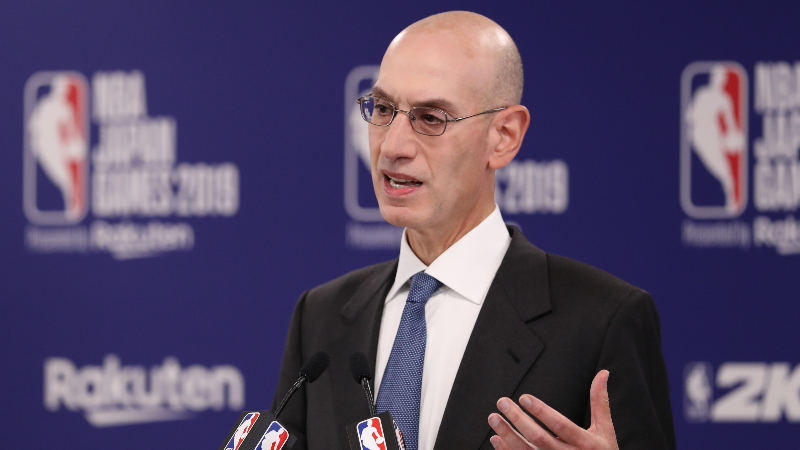
A quick return is also unlikely, at this point, based on everything we know. Events are being canceled over the next two months — the CDC on Sunday made the recommendation that gatherings of 50 people or more be cancelled or postponed for the next eight weeks. The odds being in a position where we can just fire up the postseason seems unlikely.
You can bet that the Memphis Grizzlies, Orlando Magic, Brooklyn Nets, and other teams that are happy with their seeding to be all in favor of just starting the postseason.
You can also bet that the teams on the outside looking in like Portland, New Orleans, Washington, San Antonio, and Sacramento to object. The tanking teams are likely to be ambivalent.
The other side is the idea of finishing the regular season. The big deal here is the money. The attendance gate, TV ad sales, whatever impacts there are on the national TV deal. All of this goes into the BRI for the teams and players to split. Playing the rest of the games will help avoid losses for the teams that aren't going to make the postseason (and some that are).
So while I think fans and media are excited about the possibility of eliminating the remaining number of games, there is likely to be significant pushback on the idea based on the amount of revenue lost.
Play Resumes Sometime Between June and July
This is the most often discussed scenario in the early days of the suspension, based on estimates of when the health crisis is expected to abate — again, subject to evolving circumstances.
On Sunday, Adrian Wojnarowski from ESPN reported the league is "bracing for the possibility of mid-to-late-June as a best-case scenario for the league's return."
If there's no chance of getting the league back on a normal schedule, a number of options are on the table.
The league can try and play out the remainder of the regular season. Let's play with a June 1 start date, hypothetically. They have five weeks of regular season play left in an 82-game season, and a 60-day postseason. That puts the end of the season into September at full schedule, which is likely too late.
They can truncate the regular season. Make it two weeks, to give teams on the outside of whatever seed they are pursuing a small chance to make it, but then scheduling is going to get contentious. If you truncate the schedule, and all of a sudden a team who you are chasing gets a much easier sample of their remaining games and you get a much more difficult set, that's going to be frustrating. These are small concerns, but it's another reason why truncating the regular season is complicated.
And that is, of course, before we talk about arena availability. Most of the arenas are booked through the summer for concerts. Navigating that is going to be a problem.
Even truncating the schedule starting on June 1 with a full playoff schedule would have the NBA Finals finish in mid-August. Mark Cuban and other reports have indicated the league can go as late as August, but is that preferable?
Then, there's the possibility of changing the whole format in this outlier year, and the possibilities it brings. The league has been looking to find a way to change their schedule for some time and to introduce more excitement to the product. This very serious national emergency provides an opportunity to do so whenever games resume.
The NBA Playoffs last two full months, from mid-March to mid-June. I regularly do tweets that say "the NBA Playoffs begin in (X) days" and the most common response is "and last 365 days."
Simultaneously, whenever I query league executives on how to make the game better, they say they need to incorporate more chaos because the outcomes are too predictable. We can shorten the playoffs for a truncated postseason while introducing more chaos in a year with more parity.
Imagine making the first round best-of-3, as two league executives suggested this week.
Now, there would be pushback from some powerful teams, and for good reason. The Los Angeles Lakers worked hard all season to finish with the No. 1 seed in the Western Conference and now you can lose two games to the Grizzlies and you're done? (The same is true for the Bucks, Raptors, Celtics, Clippers, Nuggets on down.)
But the intensity of those games would be off the charts. You're starting with a Game 5, essentially. Every single possession matters. The threat of the Lakers or Bucks going down in a first-round series because they lost two of three? You might skip Lakers-Grizzlies Game 3 with LA up 2-0. You wouldn't skip Lakers-Grizzlies where if the Lakers lose, Memphis can split and advance.
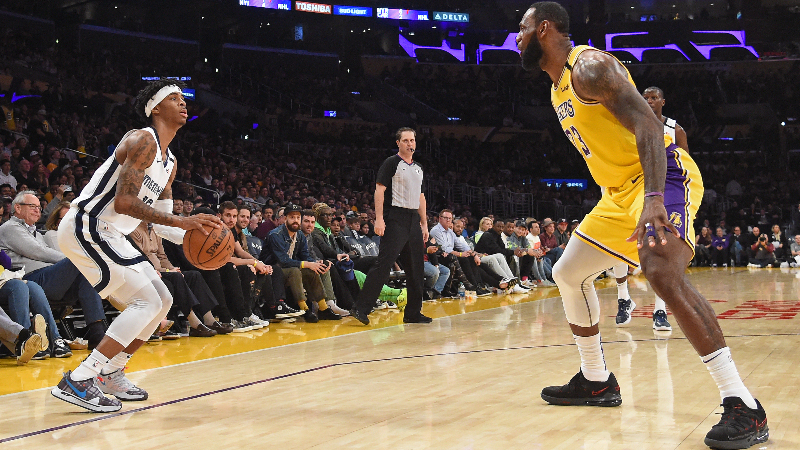
The owners are going to fight the loss of that revenue, which is why the current situation provides for the opportunity to test it and see if it can be more profitable. If a reformat of the playoff structure spikes a surge in interest, perhaps those changes can be implemented going forward. There is, after all, always the ability to resume a seven-game series next season.
A three-game series means it's not single elimination. You're not going to have the Bucks knocked out because Evan Fournier hit eight 3-pointers or the Lakers eliminated because Jonas Valanciunas had the game of his life. You would still get the best team in most instances, but the stakes would feel higher.
Three for the first round, five for the second-round, and seven for the conference finals and Finals and all of a sudden we've cut down the playoffs to a month, starting either on June 1 or July 1 and finishing no later than July 30th.
Then the draft the first week of August, free agency the following two weeks (no moratorium this time), and events are wrapped before mid-August. That would accommodate a two-month vacation post-Finals for teams, with training camps starting at the end of October (when the season usually begins).
The league can either go to a shorter schedule next seaon (which would allow them to gradually move towards a 57-70 game schedule they reportedly are interested in anyway) or just delay things and run until the end of July next season.
Another option would be to keep the seven-game format, but truncate things to three rounds. Start with just eight playoff teams in this instance. Most of the first round largely is unnecessary. Only six teams in NBA history with a seed worse than fifth have made the conference finals, none since the Knicks in 1999.
Again, the money is the problem. But there's a real opportunity to provide the league with a better product. An altered schedule would also allow for the league to incorporate the midseason tournament it has been in pursuit of for several years.
A reset of the schedule would also mean the opportunity to test Hawks owner Steve Koonan's idea of beginning the season in December and going through the summer months when baseball is the only other sport, avoiding football entirely. Starting in December is a good idea. A plan that goes all the way through the summer when NBA players have had the summer for their vacations may not get through the player's union.
A delay gives justification for a whole host of ideas about how to make the playoffs more exciting, how to create more interest, and potentially improve the product long-term. But it will take recognition from the owners that this is a moment to try and reach for a ceiling rather than grab every dollar available.
Based on their history, the chances of this happening are slim.
The Worst-Case Scenario
I was going to write that subhead as "The Doomsday Scenario" but you know, in this case, that's a little too on the nose.
A report surfaced over the weekend from 5 Reasons Sports in Miami that the NBA has a hard deadline of Aug. 1 of resuming the season. If the crisis extends into the summer months, as the UK reportedly believes, there's a legitimate chance that'll be all she wrote, and the NBA will be forced to simply restart with the 2020-21 season.
If the league is anticipating mid-to-late June as a best-case scenario, per ESPN, and has a hard deadline of August 1, we're talking 45 days at most for a window.
There are a huge number of questions in that scenario to determine as well:
- Does the NBA decide a champion? They could just grant the Bucks the title, finishing with the best regular season and most wins as of the stoppage. But no one's going to be satisfied that way. You can't hang that banner, if you're the Bucks.
- What about the awards? We had covered pretty exhaustively that Giannis Antetokounmpo was the rightful MVP and was going to in all likelihood win the award. But there were five weeks and about 20% of the season remaining. Would it be wrong to grant awards under a shortened season? Then again, there was a 2012 and 1999 MVP under the lockout-shortened seasons.
- What about the lottery? The Warriors were dead last in record as of the stoppage, but the Hawks and Cavaliers were only three back in the loss column, with Golden State having 18 games left to play with a healthy Steph Curry.
(NOTE: The NCAA's cancellation of the Tournament could have wide-ranging effects on the draft as well. If seniors or even underclassmen decide they have unfinished business without experiencing what it's like to play in the tournament, an already weak draft could get even worse.)
Canceling the season would be the last option, obviously. In that scenario, we likely have bigger issues on our plate than the NBA, just as we do in the wake of the suspension.
The suspension has been awful for teams, coaches, players, arena workers and fans. There are opportunities to pursue major changes to the schedule whenever play resumes, but even if those measures aren't taken, the NBA won't be in its usual rhythm likely for over a year.


